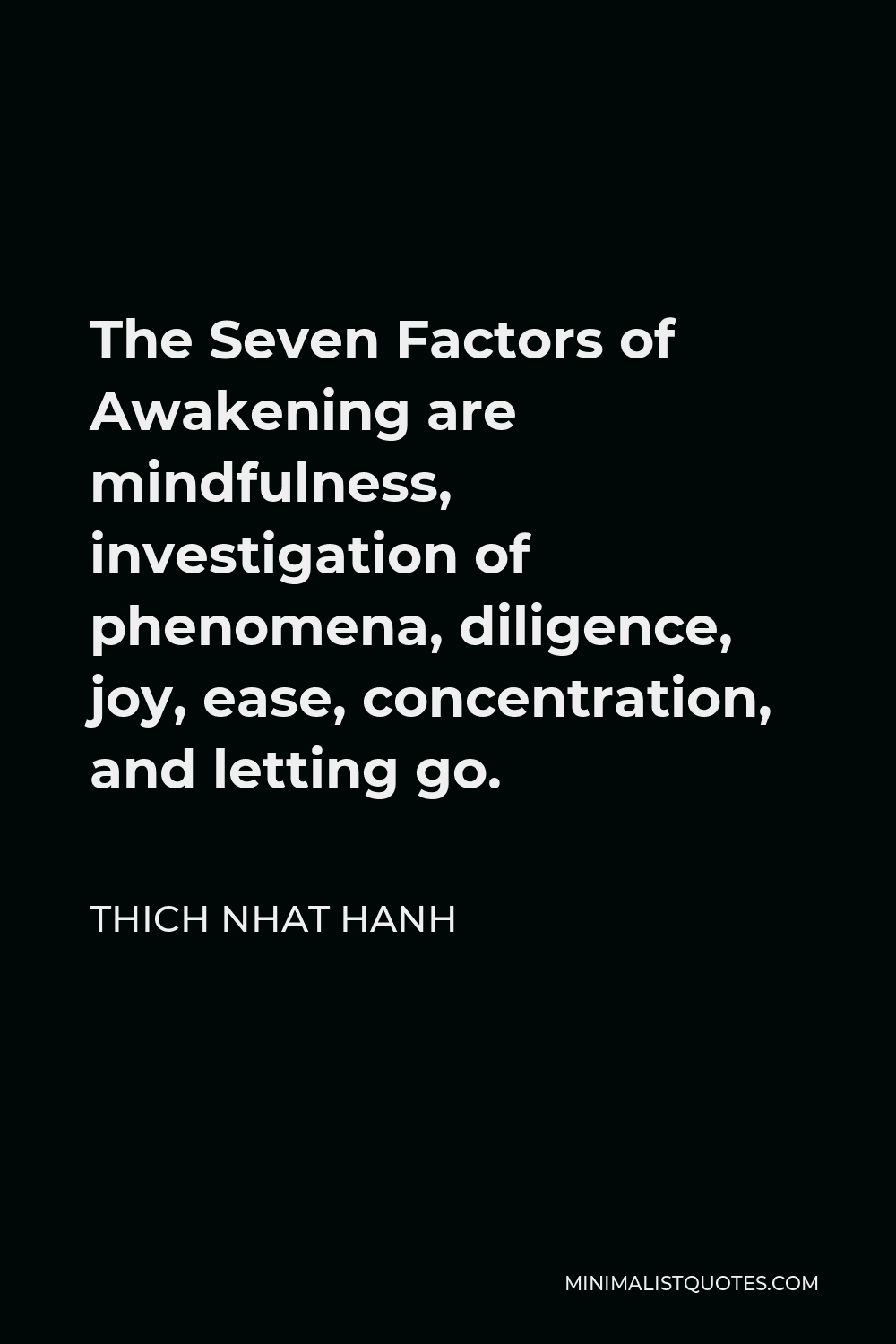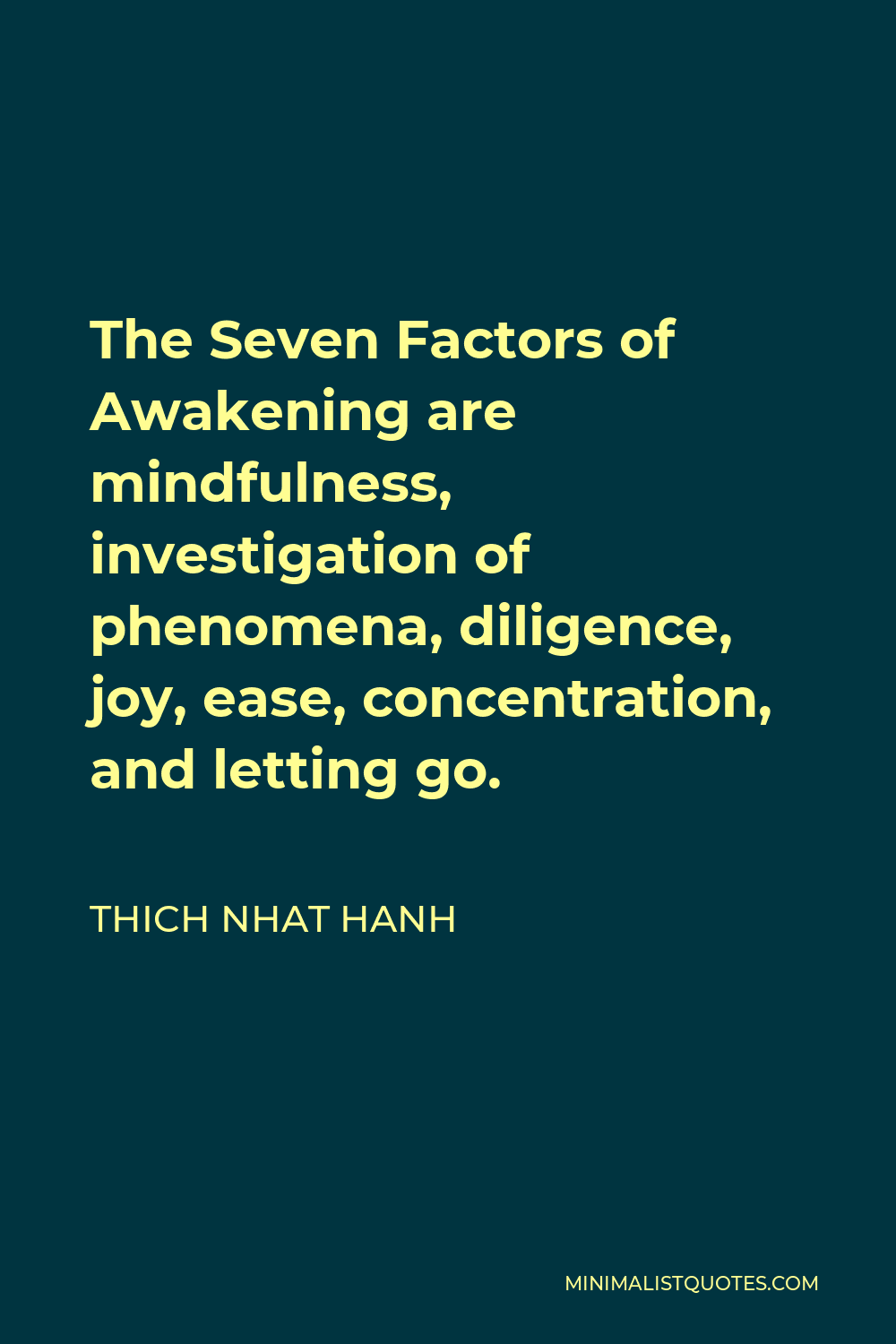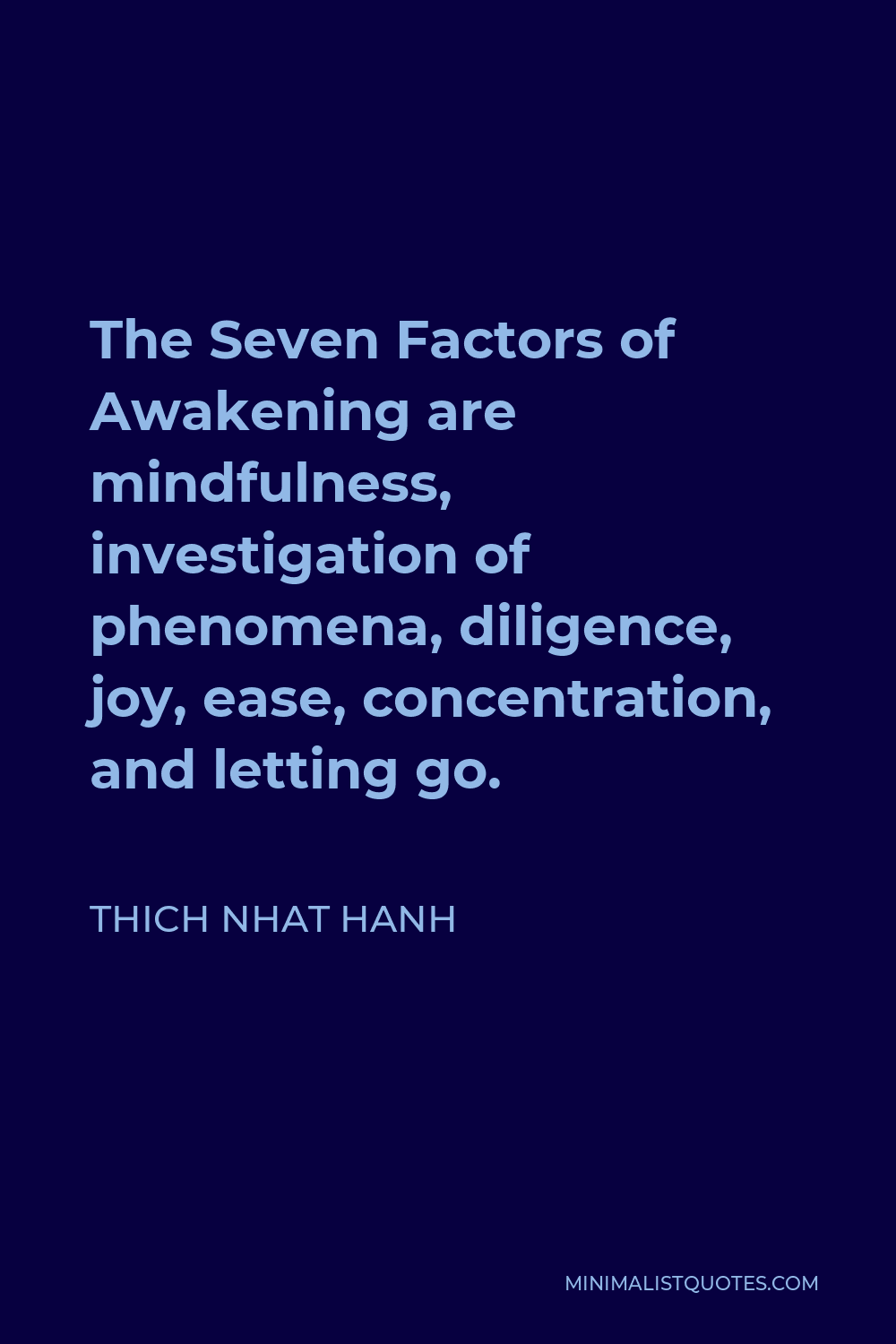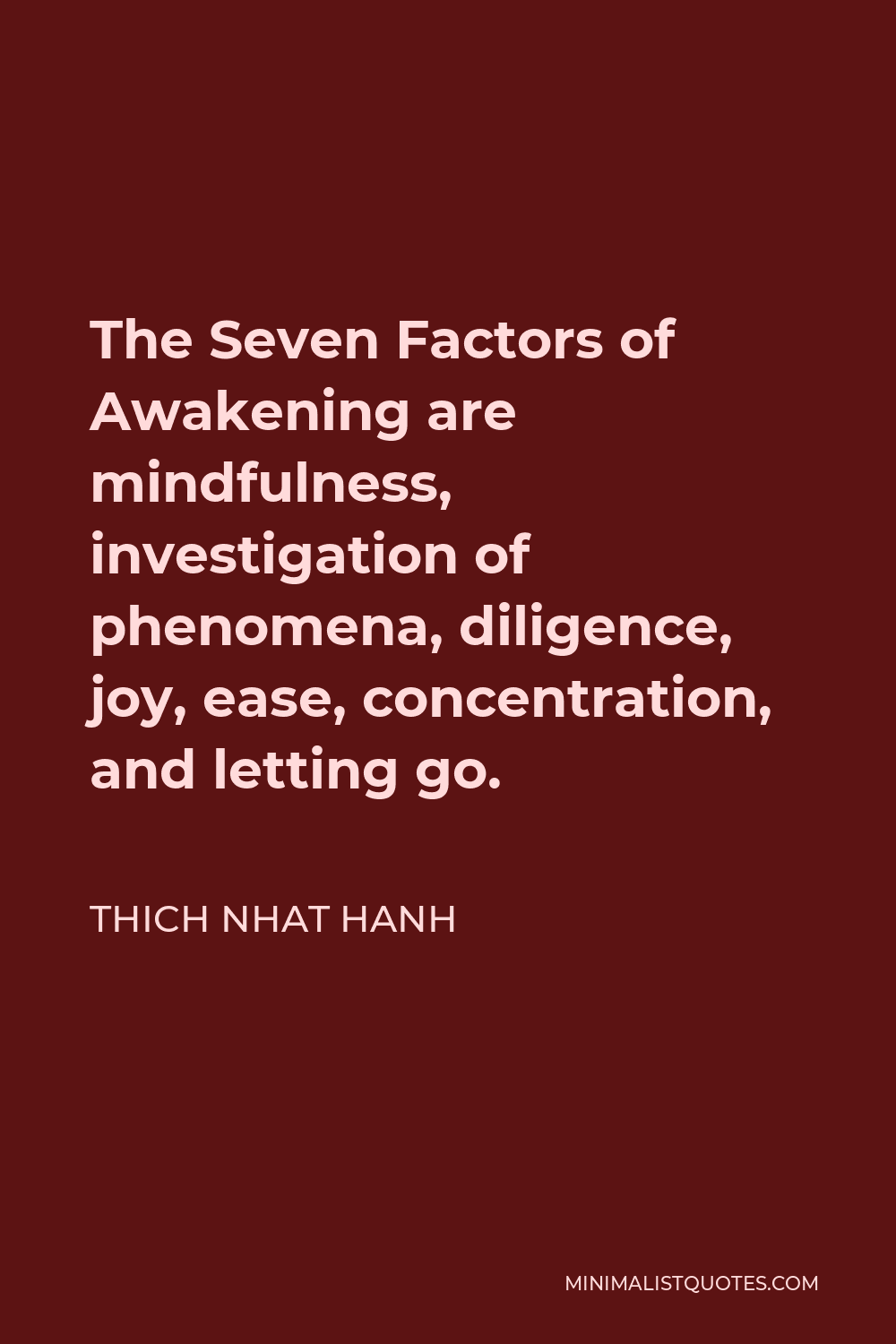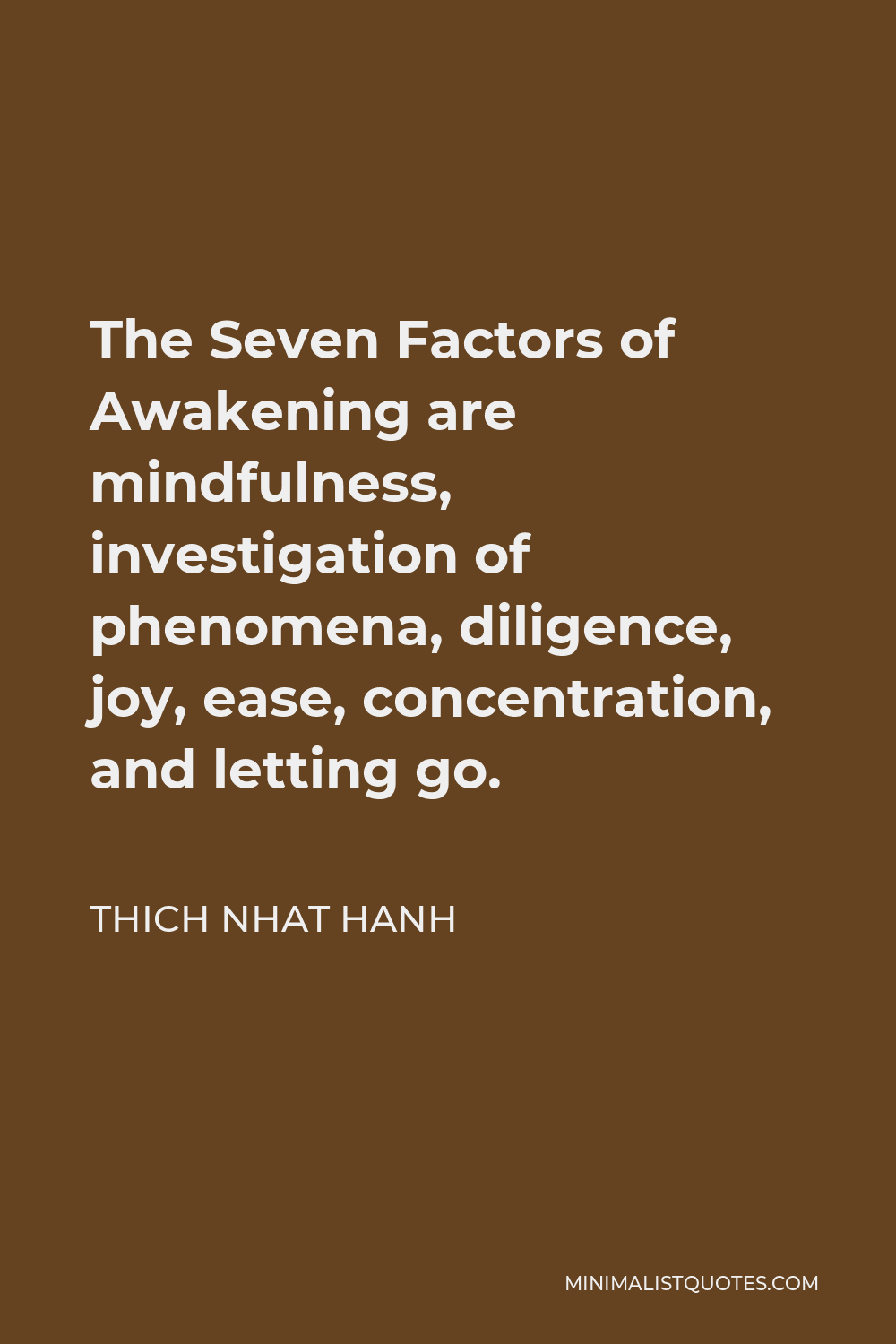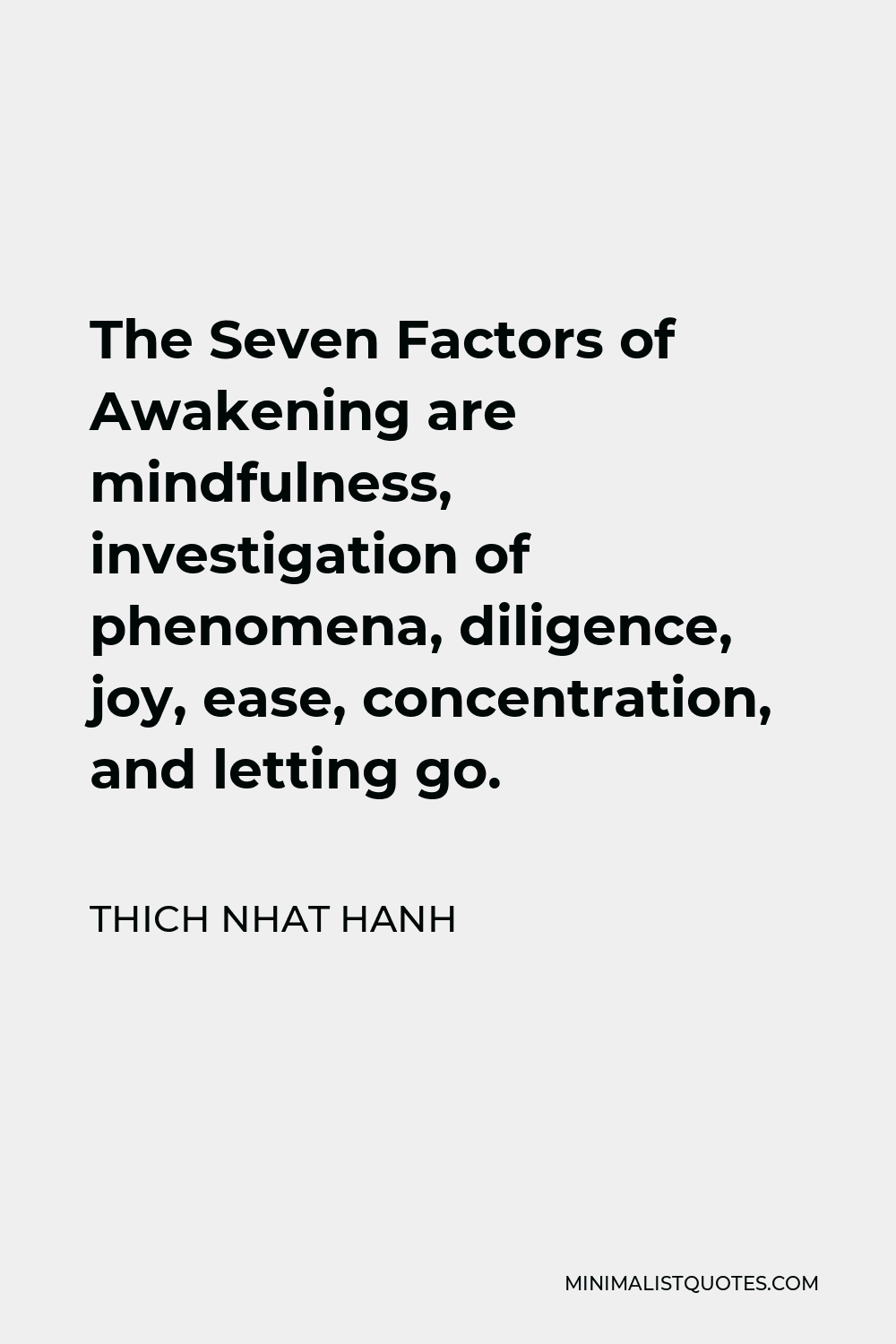To be beautiful means to be yourself. You don’t need to be accepted by others. You need to accept yourself.
THICH NHAT HANHThe Seven Factors of Awakening are mindfulness, investigation of phenomena, diligence, joy, ease, concentration, and letting go.
More Thich Nhat Hanh Quotes
-





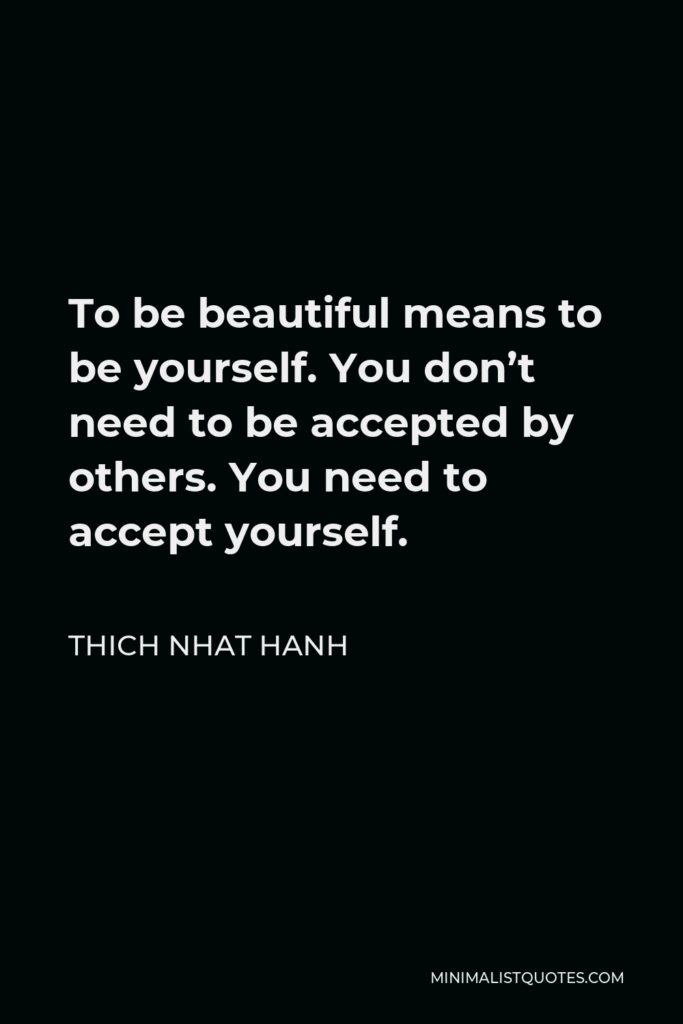

-





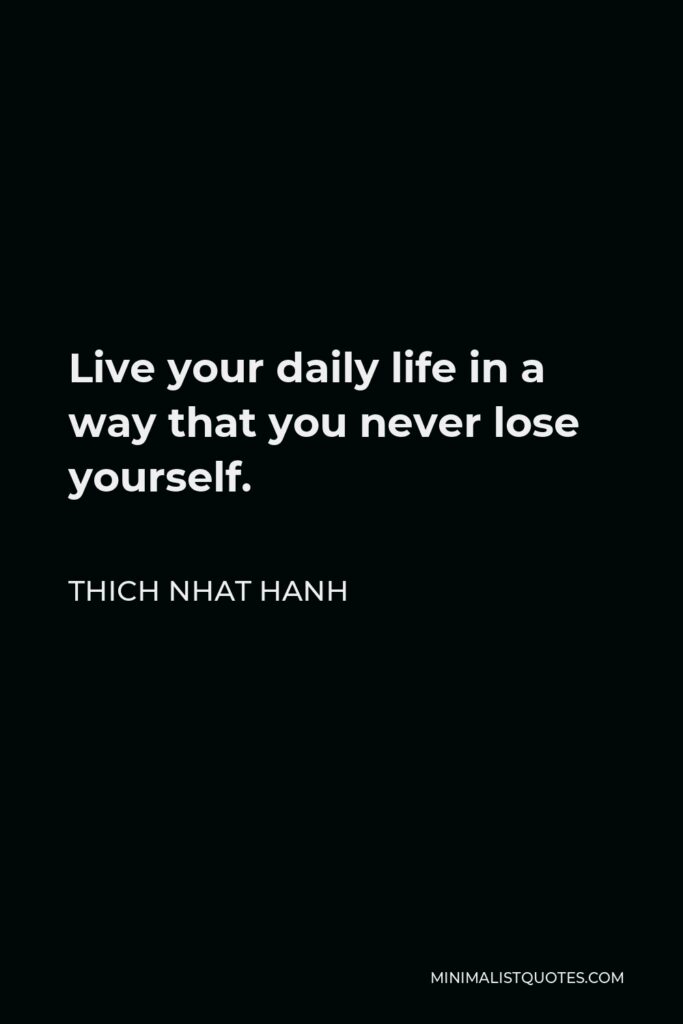

Live your daily life in a way that you never lose yourself.
THICH NHAT HANH -





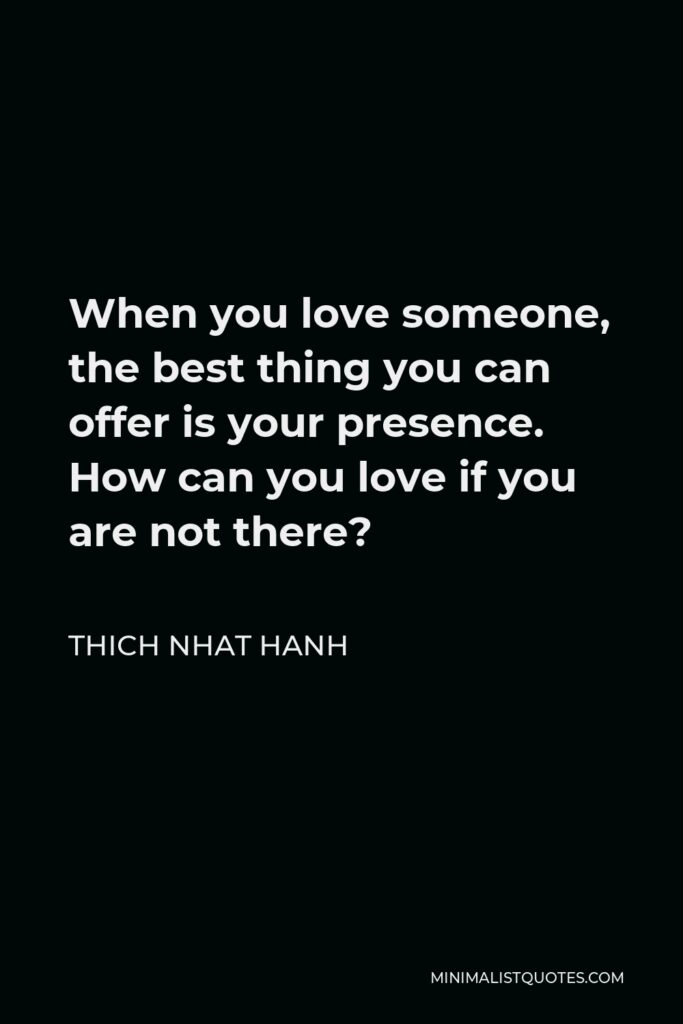

When you love someone, the best thing you can offer is your presence. How can you love if you are not there?
THICH NHAT HANH -





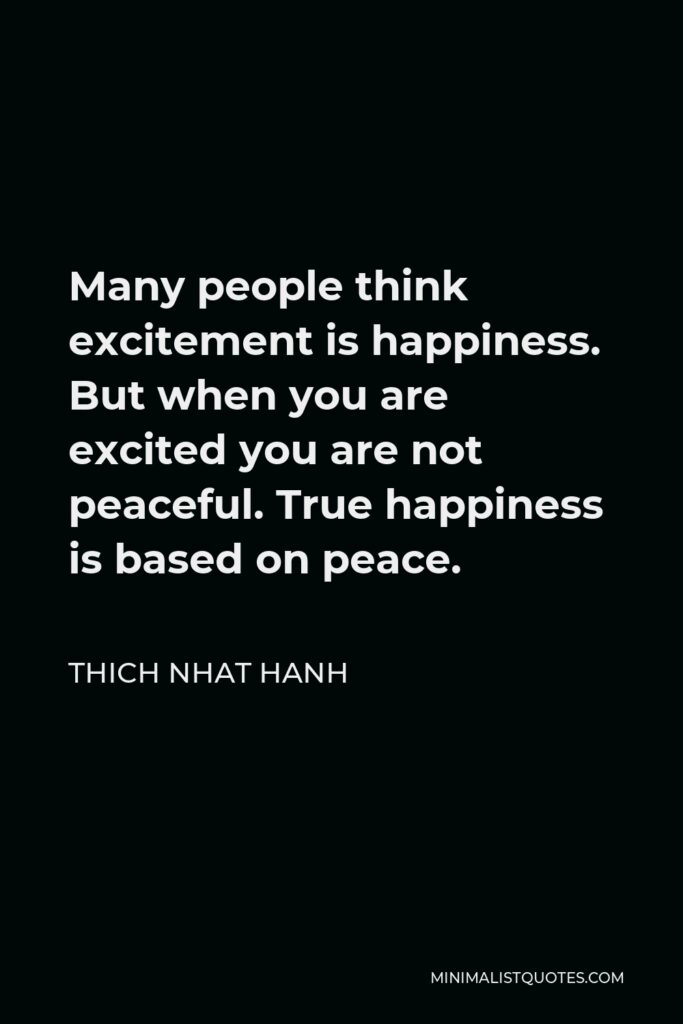

Many people think excitement is happiness. But when you are excited you are not peaceful. True happiness is based on peace.
THICH NHAT HANH -





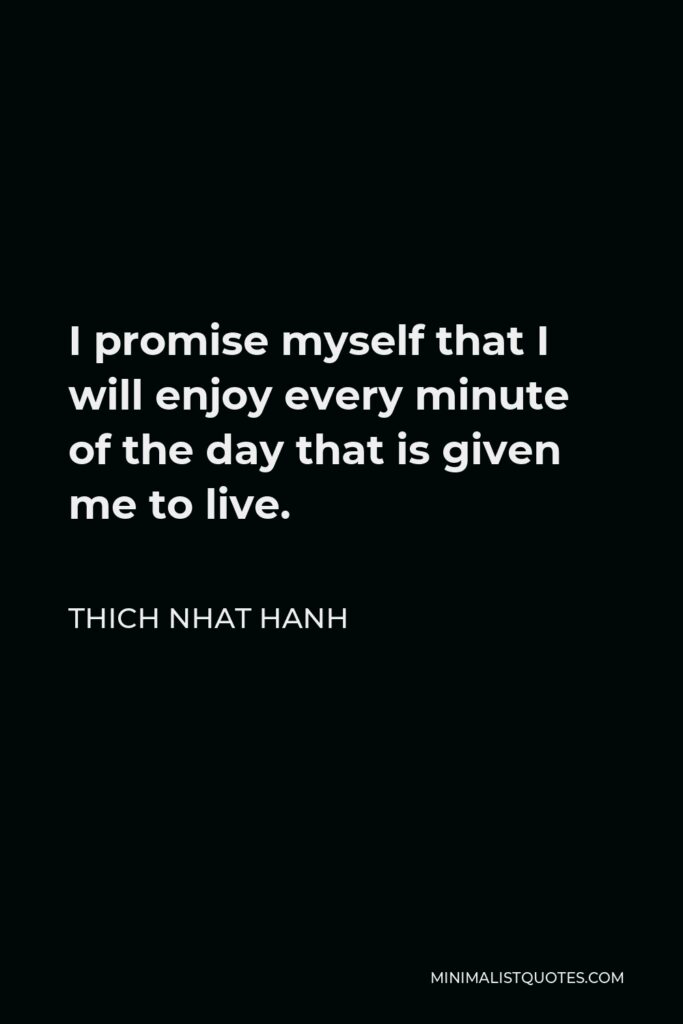

I promise myself that I will enjoy every minute of the day that is given me to live.
THICH NHAT HANH -





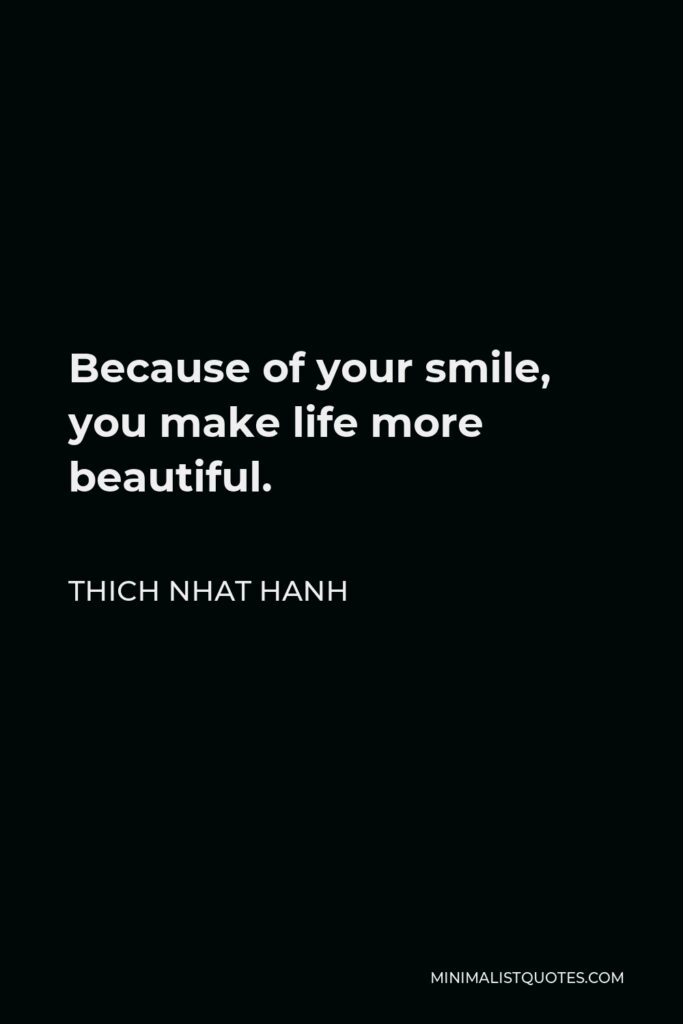

Because of your smile, you make life more beautiful.
THICH NHAT HANH -





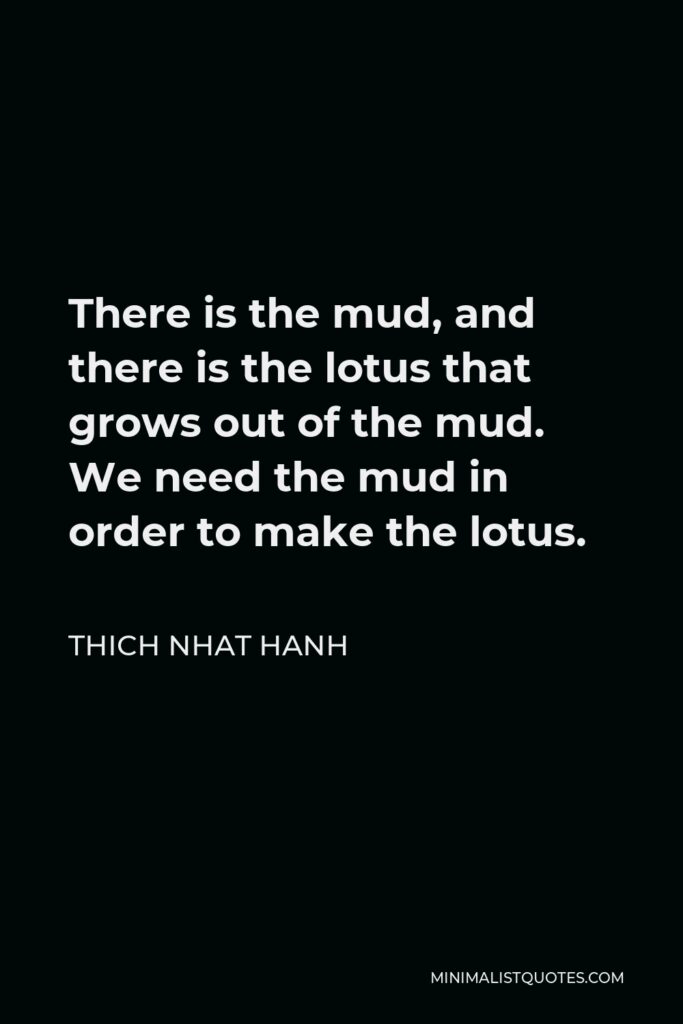

There is the mud, and there is the lotus that grows out of the mud. We need the mud in order to make the lotus.
THICH NHAT HANH -





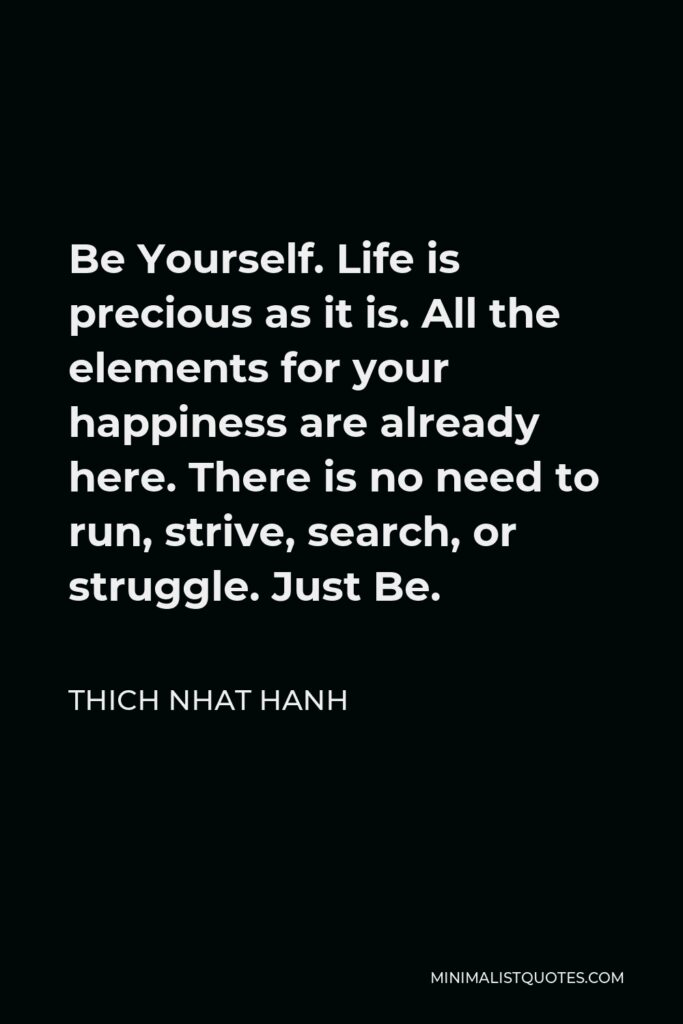

Be Yourself. Life is precious as it is. All the elements for your happiness are already here. There is no need to run, strive, search, or struggle. Just Be.
THICH NHAT HANH -





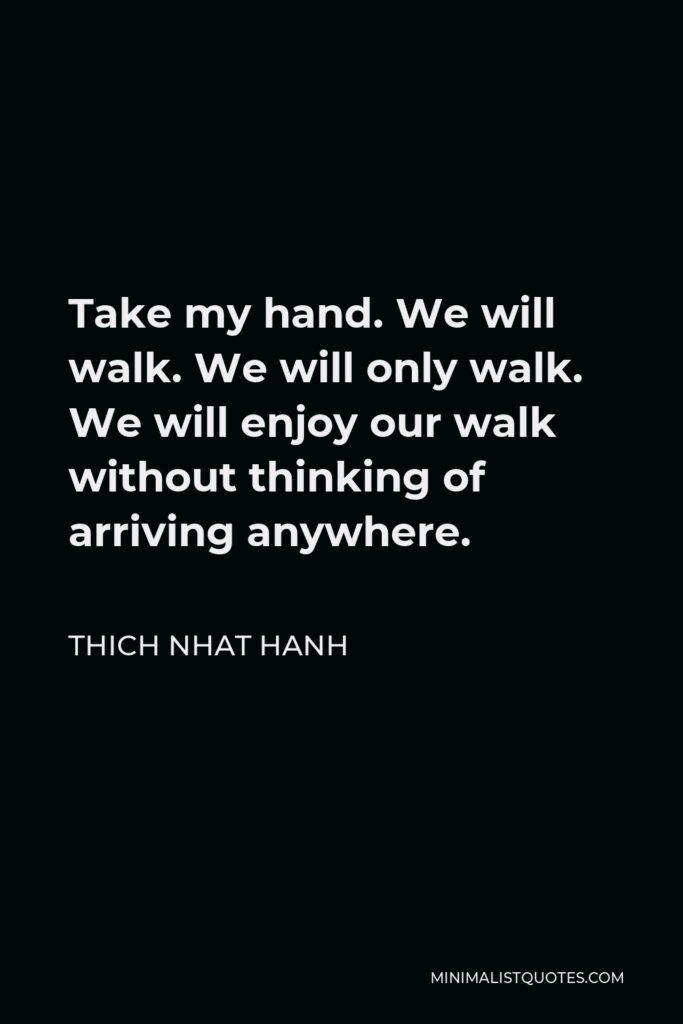

Take my hand. We will walk. We will only walk. We will enjoy our walk without thinking of arriving anywhere.
THICH NHAT HANH -





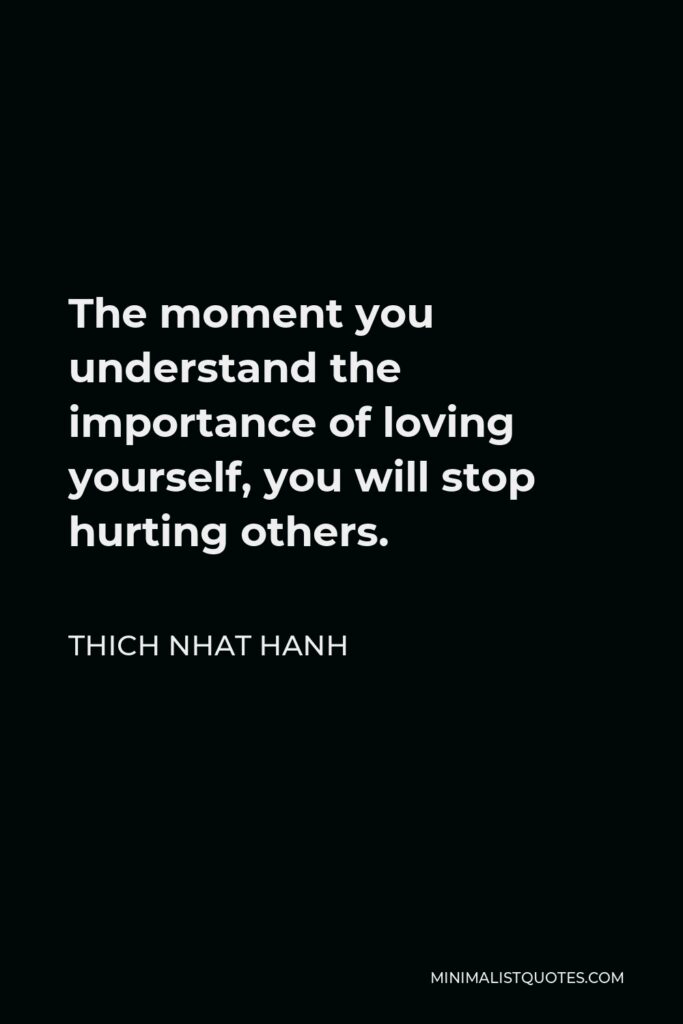

The moment you understand the importance of loving yourself, you will stop hurting others.
THICH NHAT HANH -





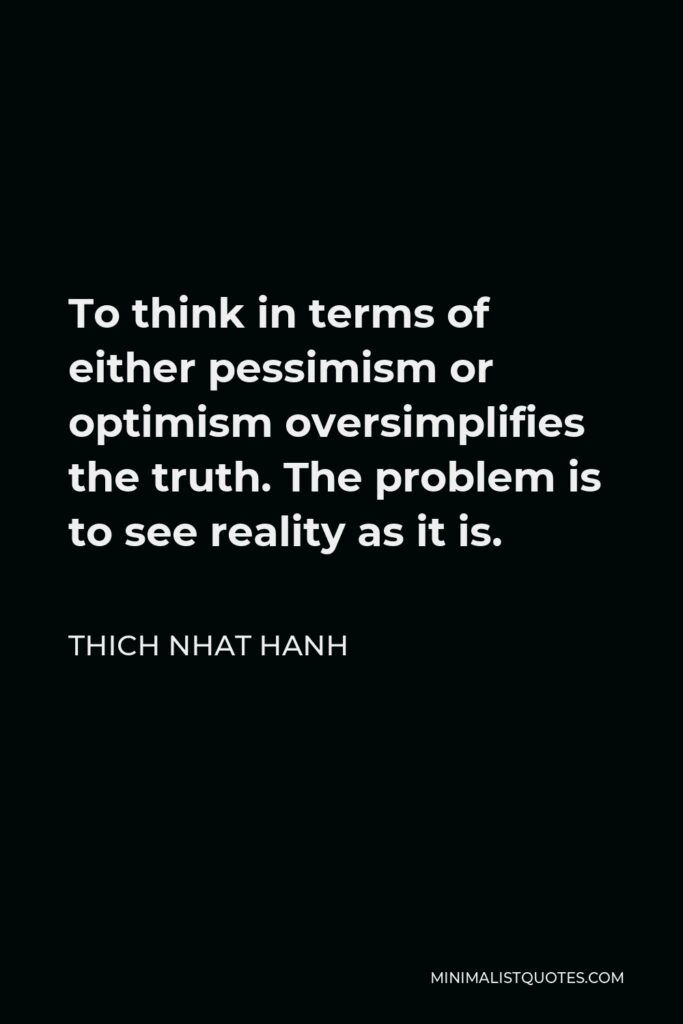

To think in terms of either pessimism or optimism oversimplifies the truth. The problem is to see reality as it is.
THICH NHAT HANH -





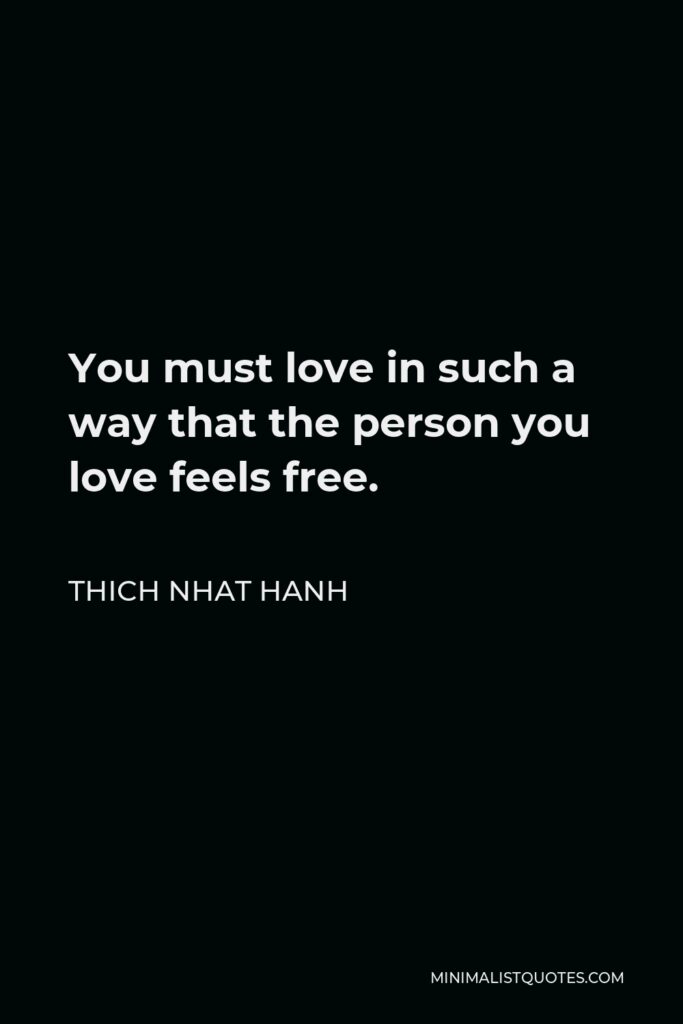

You must love in such a way that the person you love feels free.
THICH NHAT HANH -





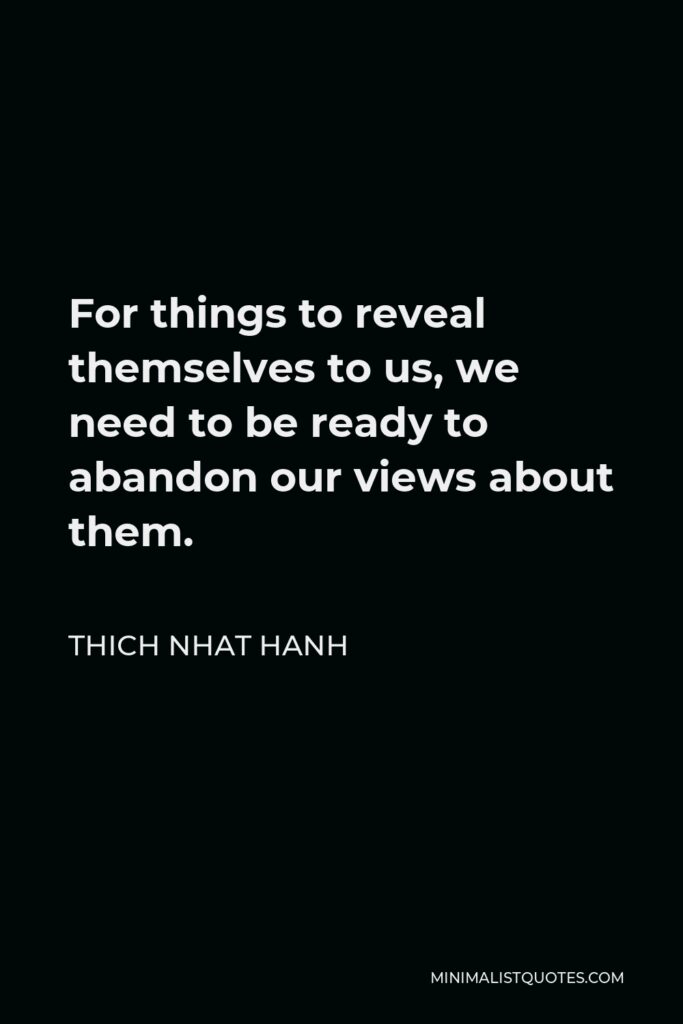

For things to reveal themselves to us, we need to be ready to abandon our views about them.
THICH NHAT HANH -





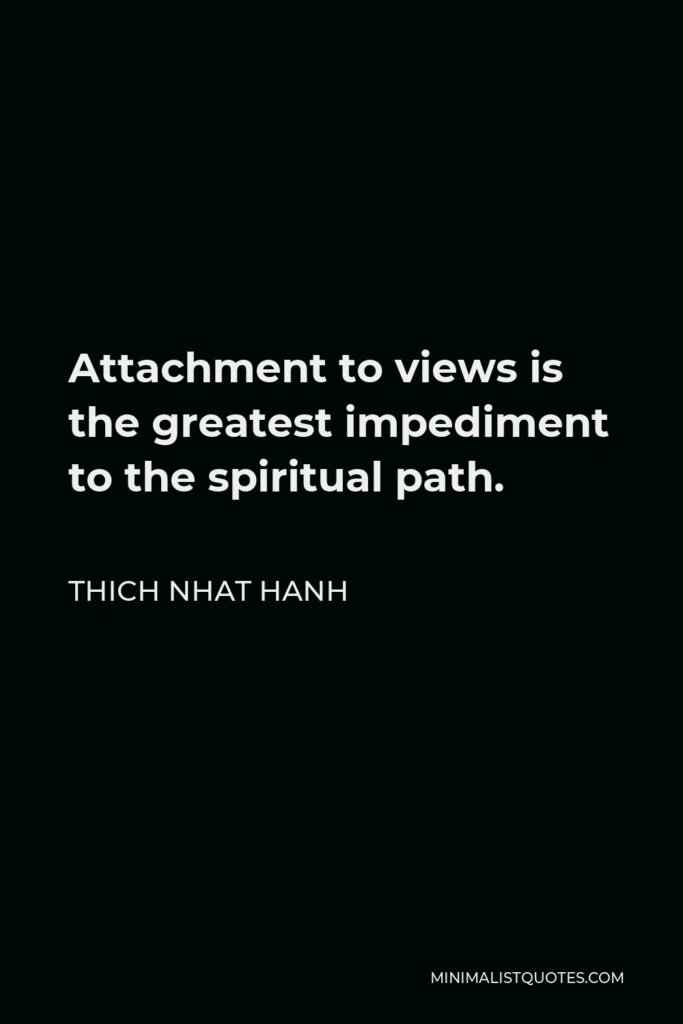

Attachment to views is the greatest impediment to the spiritual path.
THICH NHAT HANH -





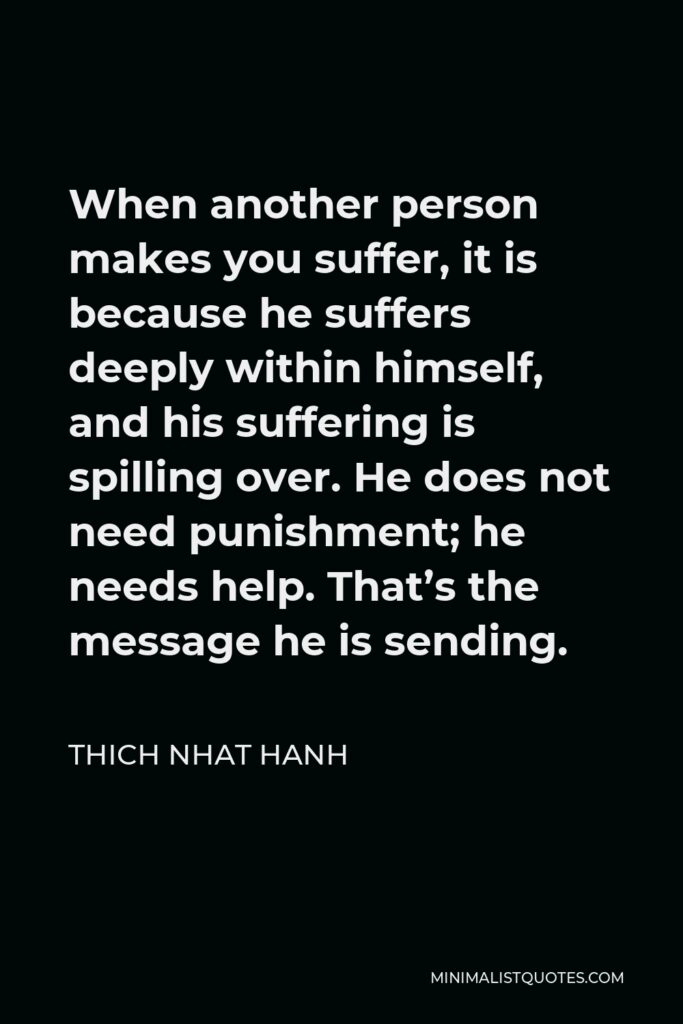

When another person makes you suffer, it is because he suffers deeply within himself, and his suffering is spilling over. He does not need punishment; he needs help. That’s the message he is sending.
THICH NHAT HANH -





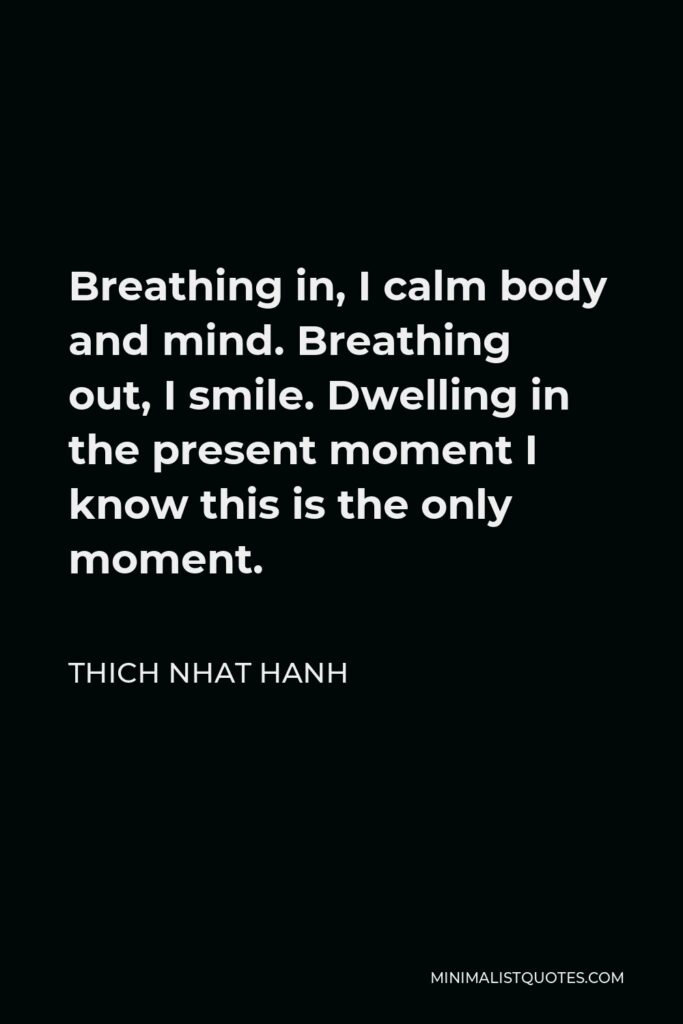

Breathing in, I calm body and mind. Breathing out, I smile. Dwelling in the present moment I know this is the only moment.
THICH NHAT HANH
